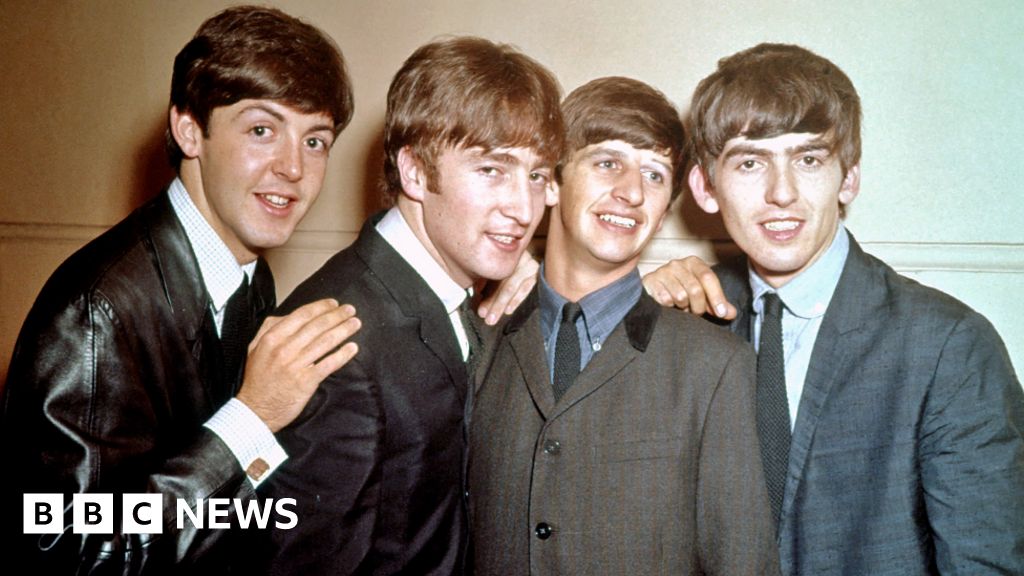Harnessing artificial intelligence, Sir Paul McCartney recreates the Beatles' last record, spotlighting its transformative role in the music industry while also underscoring the ethical implications and unpredictability of the technology's future applications.
The Unveiling of a Musical Resurrection
Sir Paul McCartney, in an interview with BBC Radio 4's Today programme, revealed a significant breakthrough in his musical journey: the employment of artificial intelligence (AI) to craft what he has termed the "final Beatles record". The technology facilitated the extraction of John Lennon's voice from an old demo, allowing McCartney to complete the song. While he refrained from revealing the song's title, indications suggest it could be "Now And Then", a composition from 1978 by John Lennon.
A Historical Prelude to the AI-Assisted Record
The demo containing "Now And Then" was initially considered as a possible "reunion song" for the Beatles in 1995 while they were compiling their career-spanning Anthology series. McCartney had received the demo a year earlier from Yoko Ono, Lennon's widow, part of a set of songs labeled "For Paul". These lo-fi and embryonic tracks were recorded on a boombox while Lennon sat at a piano in his New York apartment. Despite the potential, an attempt to record "Now And Then" was abandoned due to its incomplete structure and sound quality concerns.
The AI-Powered Renaissance of the Beatles' Legacy
The turning point arrived with the development of Peter Jackson's "Get Back" documentary. Dialogue editor Emile de la Rey successfully trained computers to recognize the Beatles' voices and isolate them from background noises. This breakthrough enabled McCartney to "duet" with Lennon on his recent tour, and new surround sound mixes of the Beatles' Revolver album to be created. McCartney expressed his excitement at the power of AI, stating that the technology was able to separate Lennon's voice from the instrumentals on the "ropey cassette". The potential to transform demos into polished tracks, McCartney admitted, offered an intriguing new level of flexibility.
AI’s Sings Promise and Peril
Despite his successful experiment with AI, McCartney expressed concerns about its wider applications. He spoke of his unease upon hearing of AI-generated tracks of Lennon singing his songs. This development symbolizes a striking tension between the exciting potential and the disconcerting ethical issues associated with AI in music. McCartney referred to the technology as both "scary and exciting", underscoring the uncertainty surrounding the future implications of AI.
AI will Reshape the Music Industry
As we venture further into the integration of artificial intelligence in music, we must confront an array of possible future consequences that could substantially reshape the industry.
- Copyright and Consent Mechanisms: With AI's potential to flawlessly replicate any voice, even those of deceased artists, it's crucial to revisit and revise copyright laws and consent mechanisms. The objective should be to protect the interests of original artists and their estates and maintain the integrity of their work.
- Redefining Authenticity: As AI-generated voices become more sophisticated, we may face the prospect of them becoming virtually indistinguishable from human voices. This could challenge our perception of authenticity in music, forcing us to reconsider what we view as a genuine musical expression.
- AI as Creators: As AI evolves, it might begin creating original music compositions, leading us to question our understanding of creativity. We will have to confront whether creativity is an exclusively human attribute or if it can be algorithmically simulated.
- AI's Dominance in Music Production: AI's accessibility and efficiency may render it the preferred tool for music production, potentially marginalizing human musicians. We must reexamine the industry's structure to balance the use of AI and the nurturing of human talent.
- AI-generated Music's Popularity: In a world where preferences can be algorithmically calculated, AI-produced music could outperform human-produced compositions in popularity. Such a trend could disrupt the dynamics of the music market and societal appreciation for music, encouraging reflection on the value we assign to human artistry.
These potential scenarios illustrate that while AI holds immense promise for revolutionizing the music industry, we must navigate its growth with caution and ethical responsibility. The intersection of AI and music demands a multidimensional dialogue among technologists, musicians, and policymakers, ensuring a harmonious symphony between technology and creativity.
Takeaway
With the infusion of artificial intelligence in music production, as exemplified by Sir Paul McCartney's AI-assisted recreation of the final Beatles record, the industry stands on the brink of a revolutionary transformation. The blend of AI and music opens up exciting avenues for creativity and innovation, redefining what is possible within the realm of music production.
However, as we consider the possible future consequences, it's evident that this journey isn't devoid of potential challenges and ethical dilemmas. Issues surrounding copyright, consent, authenticity, the role of AI in creativity, and the shift in dynamics of music production and appreciation underscore the complexity of integrating AI into the music industry. Balancing AI's efficiency and allure with the irreplaceable value of human creativity becomes a task of paramount importance.
As we step into this new era, the McCartney experiment serves not just as a testament to the transformative potential of AI, but also as a call to action. It emphasizes the necessity for multi-dimensional dialogue, ethical scrutiny, and balanced policy-making among musicians, technologists, and policymakers. Ensuring a harmonious symphony between AI and music requires that we navigate this evolution with caution, responsibility, and a deep respect for the human essence of music. It is in this careful navigation that the music industry can truly hit the right notes in its AI-empowered future.
Reference








